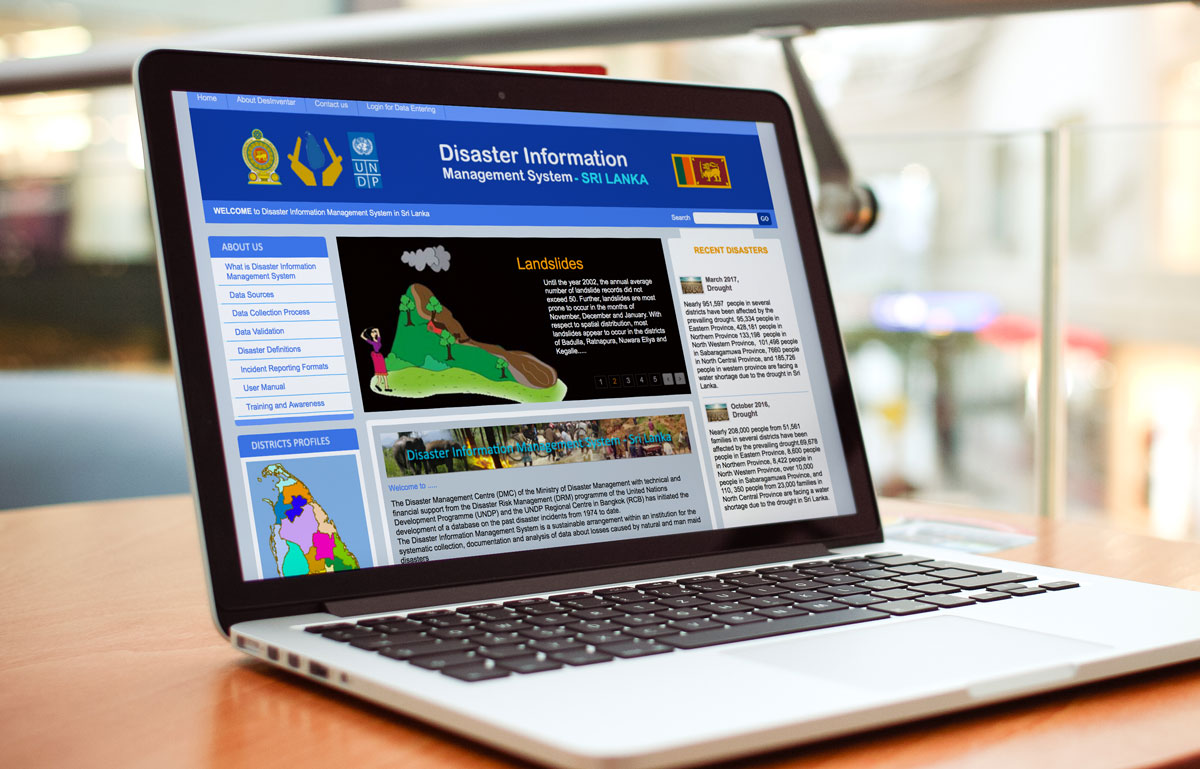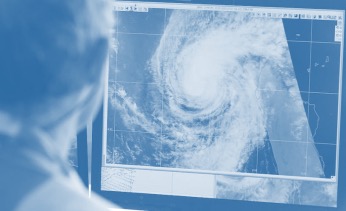Asia-Pacific E-Resilience Toolkit Tool
DesInventar Disaster Information Management System
The Disaster Information Management System is a tool that helps to analyze disaster related trends and their impacts in a systematic manner. With increased understanding of the disaster trends and their impacts, better prevention, mitigation and preparedness measures can be planned to reduce the impact of disasters on the communities.
The Disaster Information Management System functions through a sustainable arrangement within an institution for the systematic collection, documentation and analysis of data about losses caused by natural and man made disasters. The Disaster Management Centre (DMC) of Sri Lanka in partnership with UNDP maintains this comprehensive disaster information database which is kept up-to-date through collaboration with many government organisations and newspaper reports. The database holds information pertaining to disasters since year 1974. Analysis of historical data of each type of hazard and its impact is also available online.
The Disaster Information Management System (DesInventar methodology) includes a software product with two main components:
- The DesInventar module is a relational and structural database through which the data is fed by filling in predefined fields (space and temporal data, types of events and causes, sources) and by both direct and indirect effects (deaths, houses, infrastructure, economic sectors).
- The DesConsultar module allows access to the database through queries that may include relations among the diverse variables of effects, types of events, causes, sites, dates, etc. This module permits at the same time to represent those queries using tables, graphics and thematic maps.
Sources for obtaining information include print media, government and non-governmental organisations and other research organisations.
Due to a serious lack of historical data that is collected using standard methods by government organizations, print media was used as a starting point. Then based on information and data collected from the print media, it is easier to obtain further detailed information through government organisations.
Links have been initiated with the following organisations to collect data at the national level:
- Epidemiology Unit of the Ministry of Health
- Department of Social Services
- Department of Wildlife Conservation
- Department of Fire Services of the Colombo Municipal Council
- National Building Research Organization
- Department of Meteorology
- Disaster Relief Service Centre
- Department of Agriculture
- Department of Census and Statistics
Links have been initiated with the following organisations to collect data at the district level.
- District Secretariats
- Divisional Secretariats
- Provincial Councils / Local Authorities
- Police Stations
- MOH office
Though the initial data collection, validation and database system set-up was completed in 2006, national level data entry still continues.
Including this database in Sri Lanka, UNISDR and UNDP in partnership with others have implemented Desinventar systems in various countries around the world. The information from these databases can be requested by international agencies and others for research purposes to better understand disasters and to reduce risks.
This tool improves preparedness by enabling contingency planing and assists in improving e-resilience by empowering policy makers and citizens to make more informed decisions which reduce vulnerability towards hazards and disasters.






